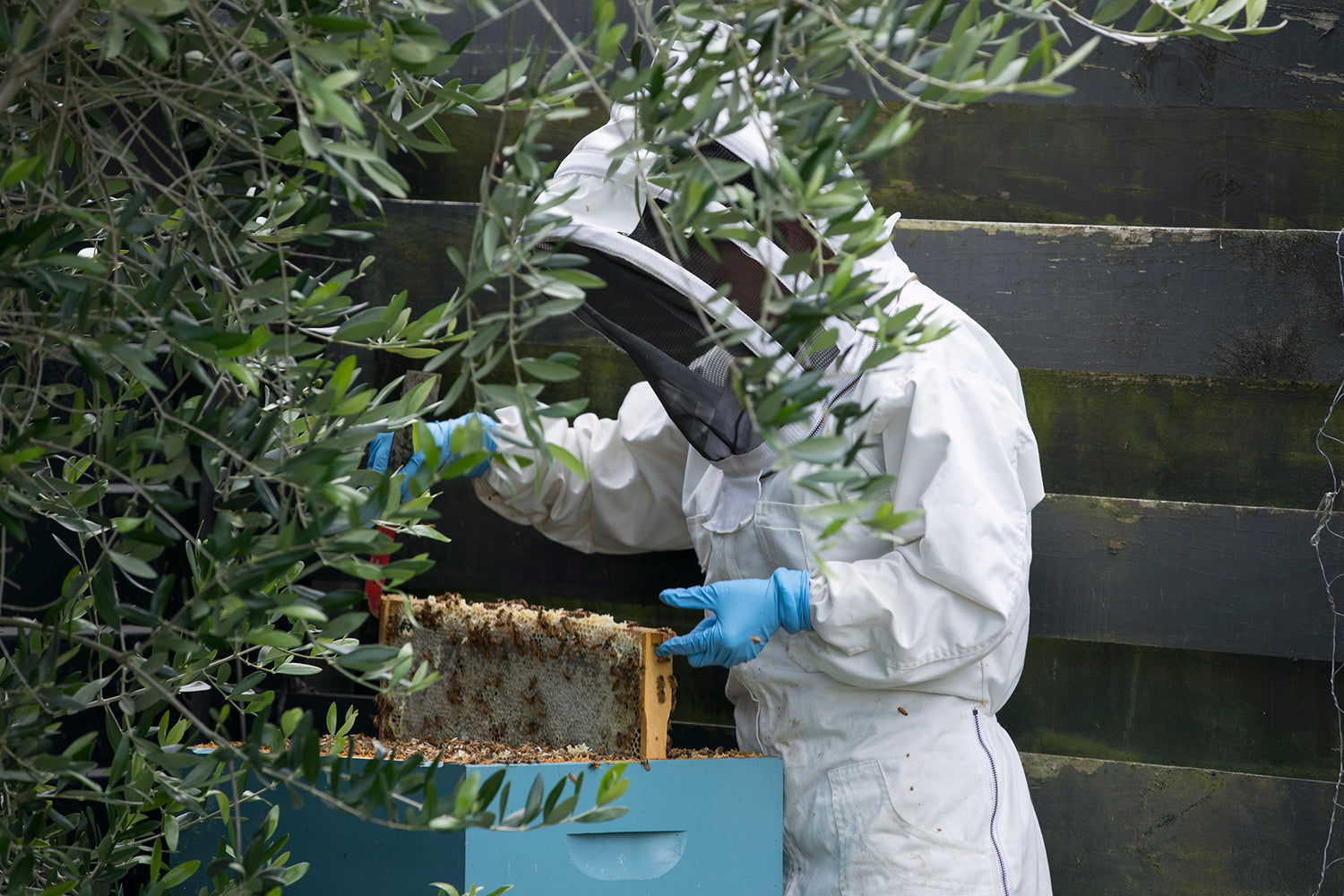Collapsible content
Why does each batch of honey from Hives Manawatu taste different?
At Hives Manawatu, we only mix honey in small batches,
usually less than 100kgs, and keep them to geographical areas as much as
possible. Large honey producers are often mixing honey in batches of many tons
and blend it to get a specific flavour. We believe the differences in flavour
between batches are one of the things which make our honey so special.
Depending on the time of year, and what types of flowers the
bees are collecting nectar from, the flavour of the honey can vary greatly.
Honey from the same apiary can even have a different taste from one year to the
next as temperatures and rainfall can affect which flowers produce nectar.
Do you add flavours to your honey?
Our Honey is 100% pure, natural honey with no additives or preservatives. We use the expertise of a wine maker to complete tasting notes for us, which are the 'flavours' you see on the lids of our jars. The colour and taste of each honey is 100% determined by the plants the bees visit to collect their nectar from. We extract our honeys by the suburb, This is what makes each of our honeys so unique.
Is your honey raw?
Yes our honey is 100% raw. All our honey is carfully extracted that minimises overheating to preserve the natural properties of the honey. Our honey is not pasteurised or ultra-fine filtered.
What is creamed honey?
What is the ideal storage place for honey?
Store honey at room temperature, ideally in the pantry out of direct sunlight. Keeping honey in the fridge will cause it to crystalise quicker. Always close the lid securely.
My honey has crystalised, what should i do?
Crystalisation is a process which happens naturally in all raw honey. Gently warming your honey will melt the crystals.
Double boiler method
• Keep the lid on your honey to prevent any water from getting in.
• Place in a pot and fill with hot water to just below the level of the honey in the jar.
• To preserve the good flavours and beneficial enzymes in the honey use water below 50°C (your hot tap should be around 50-55°C).
• Use the lowest heat setting on your stovetop to keep the water hot, and stir the honey occasionally until no crystals are visible.
Microwave method
• Loosen the lid and place in the microwave on its lowest power setting for 30 second bursts.
• Check and stir every 30 seconds until no crystals are visible.
• You’re more likely to overheat the honey using this method, so we recommend using the double boiler method if possible.
Why does honey crystalise?
Honey crystallisation is a natural phenomenon: When it crystallises, honey
turns from a liquid to a semi-solid state.
Honey contains a very high percentage of sugar – about 70% – and less than 20% of
it is made up of water.
All honey will naturally crystalise, though it will happen in some much quicker
than others depending on the ratio of glucose and fructose (determined by the nectar
collected by the bees). Crystallisation happens when glucose separates from the
water and remains in the form of crystals.
This phenomenon does not change the essence of the product and is not linked to
poor quality honey. Actually, the crystals prove that honey is high quality and
has not been processed.
Unfiltered raw honey contains particles such as wax bits, pollen grains and propolis
which act serve as nuclei for accelerating the growth of glucose crystals. As a
result, most supermarkets do not carry such honey as it tends to crystallise
even more quickly.
Processed honey remains in liquid form on the supermarket shelves for a much longer
time as sugar crystals have often been dissolved by heating (pasteurisation)
and any suspended particles and air bubbles that encourage crystallisation are
removed by fine filtration.
Can infants have honey?
The world health organisations, recommends that honey should not be fed to infants undera year old. Although all of our honey undergoes independent safety and quality testing, it does not test for the spores that cause infant botulism.
There is a risk of infant botulism, a very serious disease affecting the nervous system, when honey is consumed before age 1. These spores are widely distributed in soil, dust, the air or raw agricultural products. After ingestion, C. botulinum spores can germinate, grow and produce toxin in the lower bowel of some infants less than 1 year of age. The reason this happens is because infants’ intestinal microflora is still underdeveloped. Children and adults with normal intestinal microflora are able to ingest C. botulinum spores without harm.
Is honey gluten free?
Yes - our honey is naturally gluten free. We do not process or store any other food products in our extraction room
What is the MGO rating on manuka honey mean?
Does all of your honey come in glass jars?
Yes - all of our honey products come in glass njars. We are passionate about looking after the environment and encourage you to reuse, or recycle the glass jars.. If you see us around at a market, return your clean, empty jar for a $1 discount on your next full jar!

